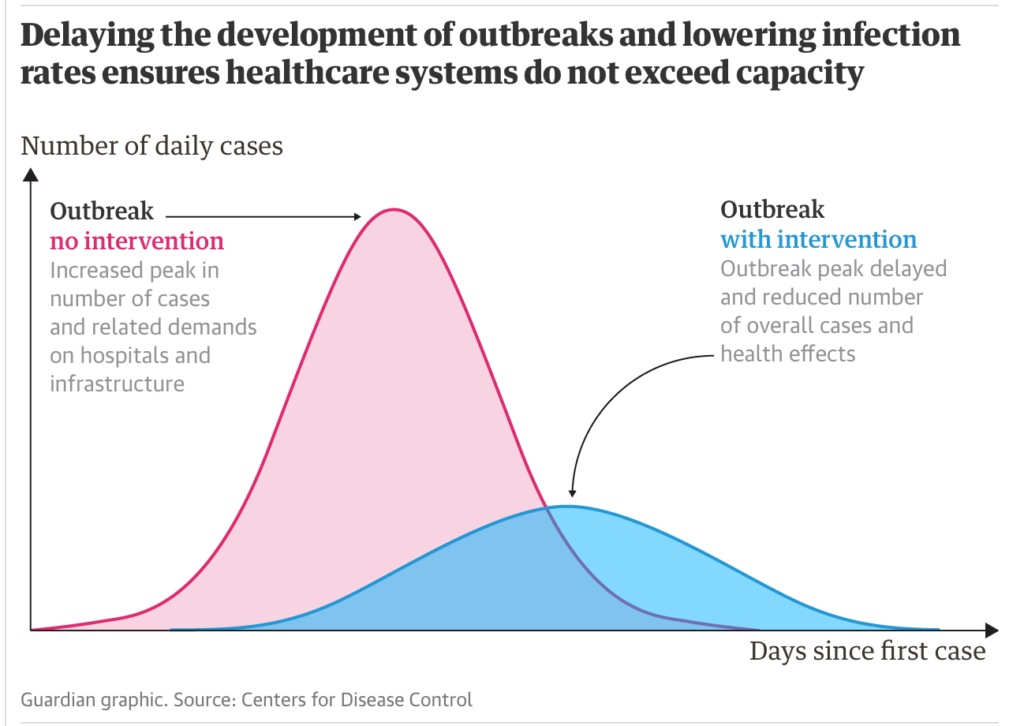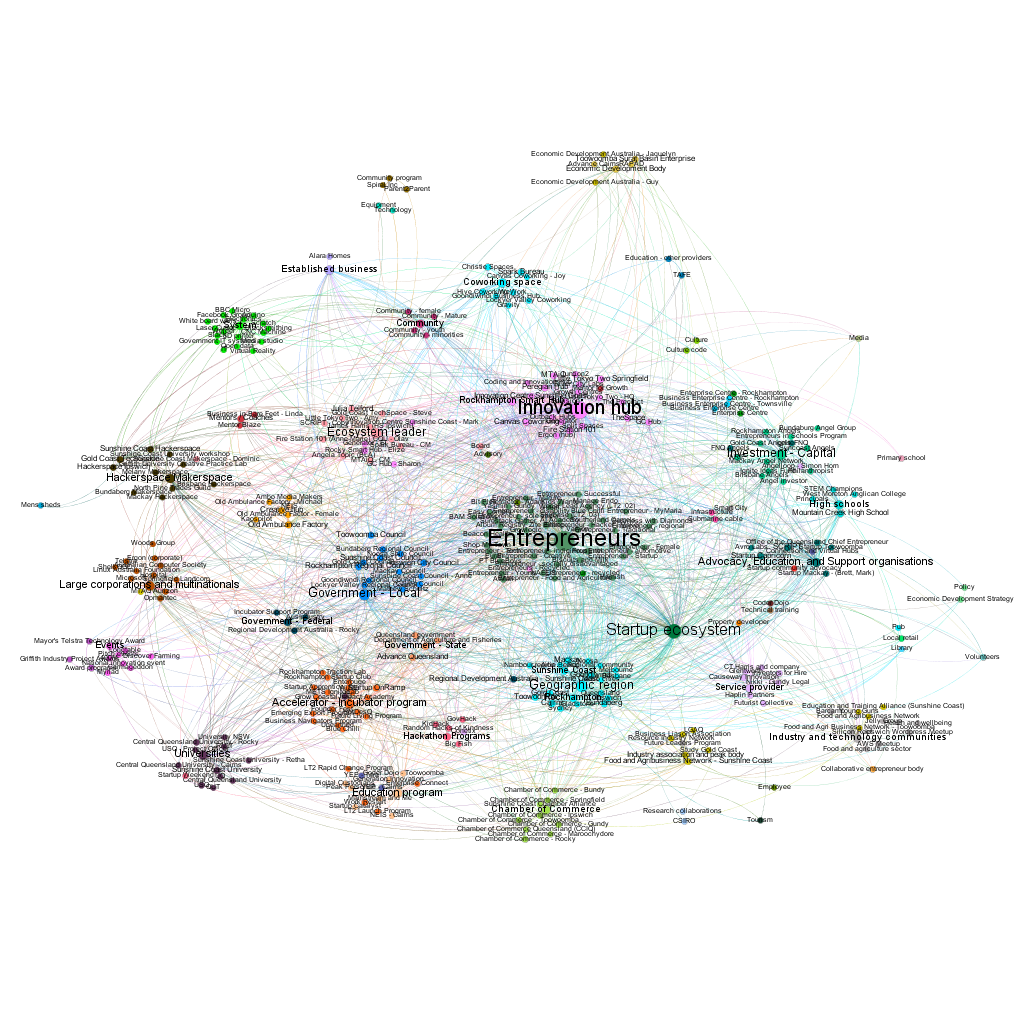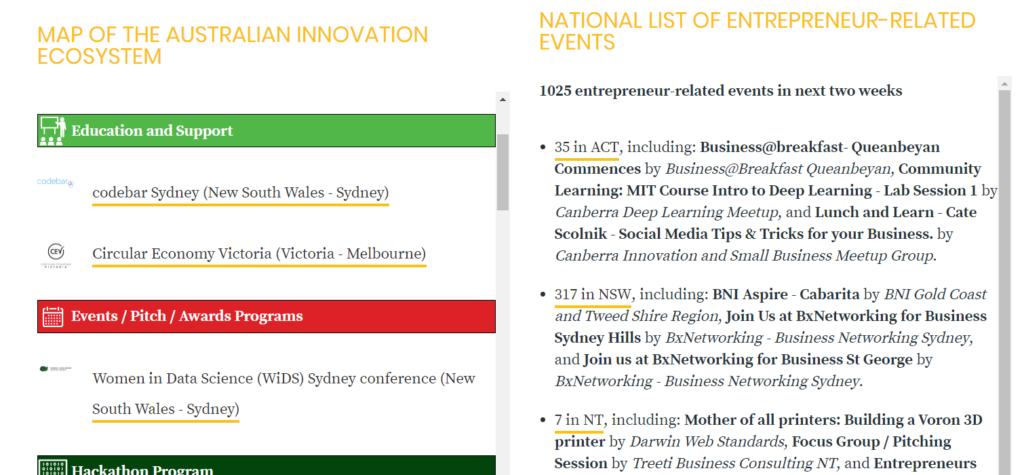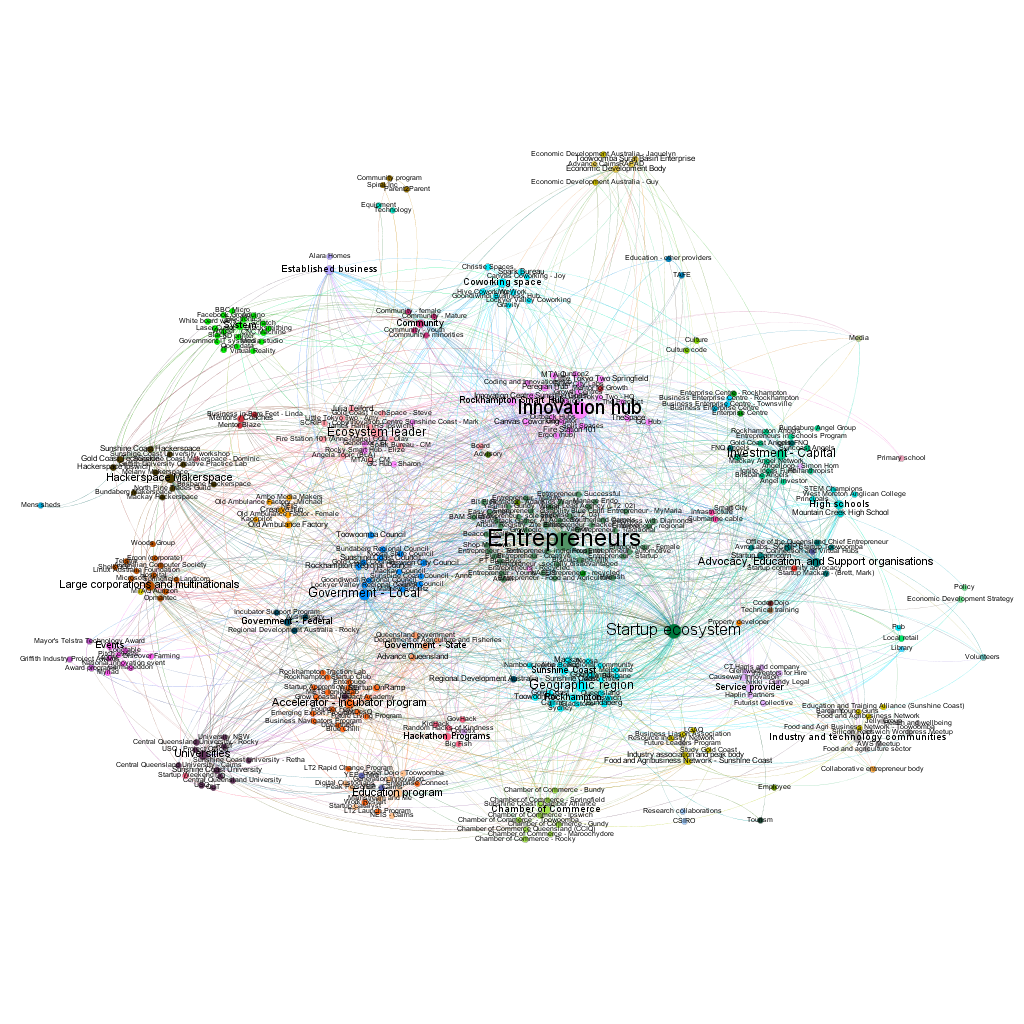How COVID-19 could spread through the startup ecosystem
Two narratives appear in terms of COVID-19 response. One is a war on panic. The other militant isolation.
It is difficult not to lean towards the latter when reading Tomas Pueyo’s Medium post Why you must act now, Silvia’s Twitter thread translation of the situation in Italy, the Atlantic’s Cancel Everything, or watching Joe Rogan’s interview with infectious disease expert Michael Osterholm. Countries are now considering whether “we are what Italy was a few weeks ago”. It is safe to say that all countries with 1,000 cases had at one point 100 cases, and no country with 100 cases stays at 100.
As a counter argument, yesterday’s FIN review highlights how the virus will be a “good opportunity for productivity reform” and that “the virus isn’t the end of the world”. Except for some it will be.
As a strategy to address the impact, one approach noted in Pueyo’s post is “social distancing” to limit contact as much as possible. The goal is to reduce the intensity of the burden on the healthcare system to ensure those who do become infected have the best chance at survival. This is described in the graphic below.

Nodes in the startup ecosystem network
The startup ecosystem is just that – a system. A main part of my research into regional innovation ecosystems is conducting network analysis on the system to identify strengths and gaps. One thing that is always striking is the speed in the network and connectivity, particularly in what can be referred to as “super nodes” or keystone species. These are people or hubs that act as a nexus of activity. For a visual, the network below is based on conversations in a handful of regions across Queensland.

The network allows transmission of information and value. It can also be easily imagined it as a conduit for COVID-19.
Events as transmission points
Another project I am working on is mapping event organisers in EventBrite and Meetup to hubs. Events are a key tool for network operation, facilitating random connections and serendipitous collisions. Events allow for information and value to span social, geographic, and industry boundaries.
It is a large project. We have over 800 hubs mapped and we are about halfway through the list. But with those we have mapped, we know there are over 1,020 entrepreneur-related events happening across Australia over the next two weeks. We keep a running snippet on the Startup Status home page.

Keep in mind these are only the hubs mapped in the system, and does not include events on other platforms like humanitix or major conferences that use their own systems.
For a quick calculation, 1,000 events, average 30 attendees, that’s over 30,000 people connecting in the next two weeks. I am keen to see how big this number gets preparing for the 2020 Global Entrepreneurship Week in my capacity as Managing Director Australia for the Global Entrepreneurship Network.
Under normal circumstances, so many events is an amazing outcome and vital for the health of a startup community. In the context of a highly contagious virus, it is a concern.
Regional impact of contagion
The main focus of my research is the structures and measurement of entrepreneur support in regional communities. The lack of population density in regional areas corresponds with low redundancy of services. This means there may be only one or two people in a community that perform a certain key function. There may be one innovation hub, one startup leader, one advocate in local government, one chamber of commerce, if any. There is also likely only one doctor.
The significant time the virus is contagious before showing symptoms means it can be transmitted and spread to many before the original person knows they have it. A person who acts as a super node will span multiple boundaries and make many connections before they realise they are transmitting. An event often brings several of these super nodes together. If a node becomes infected, the likelihood of transmission through the startup ecosystem is significant.
A regional leader attending events in the city has the risk of bringing back not just knowledge and connections but a virus as well. The impact of the virus is not just on the leader, but on the local store owner, who may be one of two or three shops in town. That shop likely acts as the local connection point for the community, who can then take the transmission back to their families.
So what now
Which leads to the big question: Should we cancel our startup events? This is a difficult call across Australia and one that needs to be made by each organiser.
It stands to reason that someone attending a startup event will be contagious at some point in the next 4 weeks. The connected nature of the ecosystem means that will spread to other startup ecosystems before it is identified. If the connections extend to a regional area, it could have significant impact.
For now, it is up to each organiser to assess the risk. In a few weeks such as the case of Italy, it may be mandated.
If you have an event, there are some protocols to consider:
- A sign on the front door making people aware of the virus and to follow appropriate etiquette in not shaking hands, coughing or sneezing into elbows, and not attending if they are feeling unwell.
- Hand sanitiser stations on the tables.
- Chairs spaced out slightly so people do not have to climb over each other to sit down. In Italy, there is a mandate to keep people in bars a metre apart.
- Announcement at the beginning to remind people of the etiquette.
- Keep distance when talking with each other.
These may seem odd when everyone appears and feels healthy, but if there is an outbreak that is not caught than continuing with events and discussing coughing etiquette may seem a poor response.
We can also look to virtual options for workshops and events. Tools such as Zoom can provide options for interactions of groups up to 100 on a paid account.
There is no point in a panic, as we can only focus on what we can control. The rush on toilet paper is an unfortunate reaction as the comic nature of the activity masks the potential significance of the threat. I could also be completely mistaken in my views, the virus will only be a blip, and other countries are not a reflection on what Australia can expect.
But I would rather share a concern now and be wrong than say nothing and be right.

